Sunday Musings: Y I H8 YA

For me, the best kind of young adult novel is the young adult novel that doesn’t feel like a young adult novel. That is, it doesn’t have all the tropes of whiny, obnoxious teenagers whining obnoxiously about how their life sucks or pining obnoxiously over one or more romance options. Not that I’m totally against the use of tropes. They exist for a reason and, if used well, can advance a story and character development. But by “used well,” I mean writers need to not just toss in stereotypes and typical actions without any forethought or consequence, or consideration for alternative options.
When it comes to YA, I expect writers who write YA to respect what a young adult is capable of. As in, they are young adults. Not obnoxious, whining, self-centred idiots. And when the shit hits the fan, they are fully capable of taking responsibility for others and for their own actions (even if there are a few moments of selfishness here and there, because they are human, after all.) I know this because I work with secondary students and young adults and, in fact, I also used to be one. There are always bad examples within any group, but I have seen more than enough examples of great young adults. I don’t simply mean the exceptional ones. The ones you know are going to be the valedictorian or march off to a third world country to build schools. I’m talking about your plain old average young adult who is struggling to figure out their place in the world, and is full of hopes and ideas and questions that they want to share, if only people would give them the chance, instead of assuming they are just dumb teenagers, focused solely on fashion and insubordination, making heart eyes at passing hotties.
As an adult, I want to read books where young adults are written with the respect they deserve. As the young adult I once was, I appreciated books that recognized my capabilities, or at least made me feel like I could do more than I thought I could and, through the characters, encouraged me to strive for more. That’s not to say I never want to read the about the flaws inherent in teen and young adult life—tropes exist for a reason after all, and they are grounded in truth. But these flaws and more obnoxious character traits need not be the priority in storytelling.
 When it comes to the bad YA by which I cast my judgment, my mind always goes back to The Forest of Hands and Teeth by Carrie Ryan. The main character, Mary, spends much of the story lamenting her oh so horrible lot in life in the aftermath of a zombie apocalypse where the undead roam outside the fence that protects her small village. As if Mary is the only one who struggles with this when, as far as the villagers know, they are the last vestiges of not-undead humanity. But hey, Mary needs to have her way, especially when love is involved, and as a result, pretty much ends up letting the zombies in and later getting her friends deaded because this is the Mary show and she doesn’t give a shit about anything but herself and her selfish needs.
When it comes to the bad YA by which I cast my judgment, my mind always goes back to The Forest of Hands and Teeth by Carrie Ryan. The main character, Mary, spends much of the story lamenting her oh so horrible lot in life in the aftermath of a zombie apocalypse where the undead roam outside the fence that protects her small village. As if Mary is the only one who struggles with this when, as far as the villagers know, they are the last vestiges of not-undead humanity. But hey, Mary needs to have her way, especially when love is involved, and as a result, pretty much ends up letting the zombies in and later getting her friends deaded because this is the Mary show and she doesn’t give a shit about anything but herself and her selfish needs.
Fortunately, I have found a number of YA books that are at the opposite end of the scale to The Forest of Hands and Teeth. In fact, it’s because of these books that this post now exists. I often start the reviews for such reads with “I hate YA, but this book….” So, when my review of The Falconer by Elizabeth May ended up with three paragraphs of why I hate YA but love this book, I decided to just write this post so that I can call back to it in the future when I review YA that I love or hate. I’m so practical like that.
 Sometimes YA can feel like an adult book by the nature of the characters themselves. Perhaps they have been forced to grow up too fast due to harsh circumstances in their lives. This was the case with The Falconer, where I continuously forgot the main character’s age until she mentioned it in passing. It’s not that Ailaena was written inappropriately for her age, but rather, the story didn’t get overly caught up in that being a factor in her character development. How often do you read books with adult protagonists that feel the need to constantly remind you that your hero is 32 years old?
Sometimes YA can feel like an adult book by the nature of the characters themselves. Perhaps they have been forced to grow up too fast due to harsh circumstances in their lives. This was the case with The Falconer, where I continuously forgot the main character’s age until she mentioned it in passing. It’s not that Ailaena was written inappropriately for her age, but rather, the story didn’t get overly caught up in that being a factor in her character development. How often do you read books with adult protagonists that feel the need to constantly remind you that your hero is 32 years old?
Ailaena has to deal with the frustrations of etiquette and reputation as her father seeks a husband for her, but those issues are far more about the societal constraints she lives within, than her age. Behind the façade she presents to the aristocracy, Ailaena is actually a fae killing falconer, forged into a warrior by her thirst for vengeance in the death of her mother.
 Penryn is another fire-forged character, but in the Penryn and the End of Days trilogy by Susan Ee, we learn that Penryn’s will to survive and to protect her family was burned into her long before the angels’ civil war tore the world apart. Her survival instincts come from living with a violently schizophrenic parent whom she loves dearly. Not only do I love this series for how it allows people with disabilities to shine in unique ways, but for Penryn’s fierce love for and loyalty to those people. Her moments of attraction to the perfection that is the archangel Raphael? That’s just a bonus, but it is not what drives Penryn.
Penryn is another fire-forged character, but in the Penryn and the End of Days trilogy by Susan Ee, we learn that Penryn’s will to survive and to protect her family was burned into her long before the angels’ civil war tore the world apart. Her survival instincts come from living with a violently schizophrenic parent whom she loves dearly. Not only do I love this series for how it allows people with disabilities to shine in unique ways, but for Penryn’s fierce love for and loyalty to those people. Her moments of attraction to the perfection that is the archangel Raphael? That’s just a bonus, but it is not what drives Penryn.
Let me talk about romance for a moment. It seems like there is a stipulation that all YA must have romance.
Worse, since Twilight, it must have at least two romance options so that appropriate #TeamX memes can circulate Tumblr when the book inevitably becomes the next hot film trilogy. I am a hopeless romantic when it comes to my fantasy worlds, but that doesn’t mean I want romance shoved in my face all the time.  The kind of YA that I do not want to be a part of is the YA where the romance dominates the story. I’m looking at you, Throne of Glass series by Sarah J. Maas, which started out wonderfully, but in the second book, turned into a constant shmoochy-face fest between the main protagonist and the second man she’d fallen for in two books (because we need a threesome remember—though Maas ups the ante by offering a potential third lover for Caelana. By the third book, Heir of Fire Caelana is too busy lamenting her second love and her life in general to allow herself another.)
The kind of YA that I do not want to be a part of is the YA where the romance dominates the story. I’m looking at you, Throne of Glass series by Sarah J. Maas, which started out wonderfully, but in the second book, turned into a constant shmoochy-face fest between the main protagonist and the second man she’d fallen for in two books (because we need a threesome remember—though Maas ups the ante by offering a potential third lover for Caelana. By the third book, Heir of Fire Caelana is too busy lamenting her second love and her life in general to allow herself another.)
As my co-blogger Tiara puts it, sometimes it seems like writers actually just wanted to write a romance book, but decided to stick some other stuff in there to fill out the pages. Alternatively, it feels like writers have a great story to tell, but are pressured to shove a romance in there because that’s just what you have to do.
A good romance needs to be organic. Whatever the circumstances that bring the characters together, it needs to feel natural. And, unless you are writing a romance novel, it should never be the driving force in the story. But to take some pointers from romance novels, don’t be afraid to tease the reader. Make us want it. Make us beg for these characters to get together–even if you never let that romance happen. But don’t just shove them into kissy face mode because you can. Build the tension and give the reader some electricity crackling beneath the main plot.
 The Falconer does this well, as does Maggie Stiefvater’s The Raven Cycle series. The latter opens with Blue learning through a vision that sharing a kiss with her first love will result in his death. No pressure! This ominous prophecy lurks in the shadows of the greater mystery that Blue and the Raven Boys are trying to solve. Relationships are very important in this series, but not merely the romantic one. Friendship and loyalty to that friendship is a big priority for Blue and the Raven Boys. Stiefvater’s ability to build deeper interactions elevates the story in so many ways.
The Falconer does this well, as does Maggie Stiefvater’s The Raven Cycle series. The latter opens with Blue learning through a vision that sharing a kiss with her first love will result in his death. No pressure! This ominous prophecy lurks in the shadows of the greater mystery that Blue and the Raven Boys are trying to solve. Relationships are very important in this series, but not merely the romantic one. Friendship and loyalty to that friendship is a big priority for Blue and the Raven Boys. Stiefvater’s ability to build deeper interactions elevates the story in so many ways.
 It’s also important to note that the boys get just as much air time as Blue in The Raven Cycle. They are beautifully complex–something you don’t often find in the rare YA books that feature male leads. But it should also be noted that, in YA that does feature male leads, writers don’t seem to spend quite as much time having the males whine over their romance options. Or having them whine at all. Complaining about a hard life is understandable, but reading pages upon pages of it is not entertaining. The complexity of male characters often goes far deeper than who they are in love with, and even if romance is involved, that does not become the central focus of the plot. In M.L. Brennan’s Generation V, Fortitude has many issues that colour his personality and his relationships, and his romantic connections certainly are part of his struggles, but they are not his main motivation and we don’t have to spend pages upon pages reading about them.
It’s also important to note that the boys get just as much air time as Blue in The Raven Cycle. They are beautifully complex–something you don’t often find in the rare YA books that feature male leads. But it should also be noted that, in YA that does feature male leads, writers don’t seem to spend quite as much time having the males whine over their romance options. Or having them whine at all. Complaining about a hard life is understandable, but reading pages upon pages of it is not entertaining. The complexity of male characters often goes far deeper than who they are in love with, and even if romance is involved, that does not become the central focus of the plot. In M.L. Brennan’s Generation V, Fortitude has many issues that colour his personality and his relationships, and his romantic connections certainly are part of his struggles, but they are not his main motivation and we don’t have to spend pages upon pages reading about them.
 Another YA novel that scores high on my list is Unwind by Neal Shusterman. It also features a male lead and, while Connor is not quite as complex as the Raven Boys, he is still quite believable and relatable. Unwind loses a few marks for a romance that seems a bit forced, but thankfully, it isn’t dwelt on. The major themes of abortion and survival within a very possible future are far more prevalent, and, while the teenagers in question do reveal their immaturity through occasionally impetuous and highly emotional decisions, Shusterman also allows them to show wisdom, leadership, and respect.
Another YA novel that scores high on my list is Unwind by Neal Shusterman. It also features a male lead and, while Connor is not quite as complex as the Raven Boys, he is still quite believable and relatable. Unwind loses a few marks for a romance that seems a bit forced, but thankfully, it isn’t dwelt on. The major themes of abortion and survival within a very possible future are far more prevalent, and, while the teenagers in question do reveal their immaturity through occasionally impetuous and highly emotional decisions, Shusterman also allows them to show wisdom, leadership, and respect.
Okay okay, so “hate” is a strong word to use when it comes to my reading preference. I will never turn down a book just because it is YA, but I will judge it harshly if it fails to meet my stringent criteria. The ones that make it past my guard and prove themselves worthy? They have earned themselves a special place on my bookshelf.
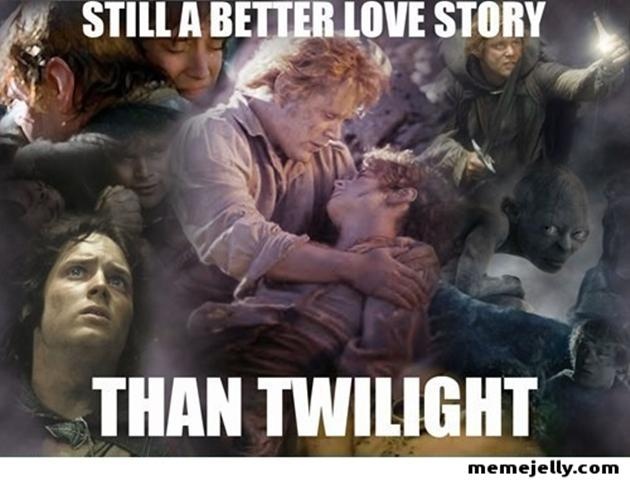
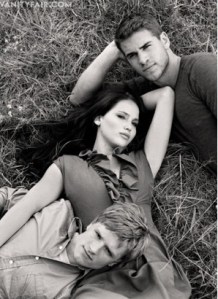







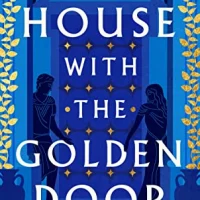
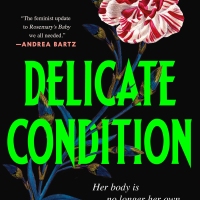

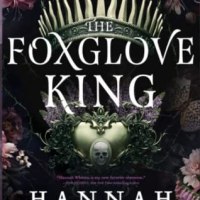
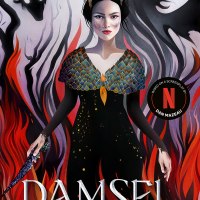
yes! it does seem like they wanted to write romance, and then just filled out with other things
Ugh Mary. She sucked
LikeLike
I’ve been analyzing my YA choices I’ve been reading lately. I seem to have the most problems with speculative YA fiction. Contemporary YA, not so much. I guess because it “feels” real because they’re in the contemporary setting while YAs in a fantasy/sci-fi setting are probably no worse or better than their contemporary counterparts, but there’s a certain level of “difference” for lack of better word that I expect for a speculative book. I do expect them to go through all the teenage angst despite genre, but using Mary as example, the way she approaches the world should be different than the way a kid NOT living in a ZA would approach the world. You just wouldn’t make *some* of the same stupid mistakes because your world is dangerous and totally different from the kid who’s living in a normal modern day setting. Then, add the fact that female protagonist in speculative YA fiction tends to make them turn into idiots more so than males that lead speculative YA even if romance is part of their plot. I have been better in trying to point out what I enjoy about YA books rather than just writing them off completely because of characters like Mary. The Forest of Hands and Teeth is wonderfully written and has a superbly creepy atmosphere. Mary is an atrocity, though. LOL
LikeLike
I like YA… sometimes. I find YA novels to be like palate cleansers a lot of the time for me. When I want to read but don’t know what to pick up because there are a dozen options I can’t choose between, I’ll reach for a YA novel. They’re quick, light, and usually rekindle my desire to read other books.
But holy crap, are most of them ever formulaic! You’ve nearly always got a female teenage protagonists who stumbles across things nobody else has discovered yet, has to choose between one of two guys, and ends up in a plot to save the world. Assuming we’re talking YA SFF, anyway. Some break the mold in certain areas, but many of them stick to the tried and true, which is why I can’t handle much YA at a time. I get burned out too easily, because all too often I feel like I’m reading the same story with different characters, or a different story with the same characters. So I don’t hate YA, but so much of what I come across is very unappealing in a long-term sense, so I don’t read nearly as much of it as I used to.
LikeLike
And you definitely just pointed out many other things that bug me when I’m reading YA, too. It makes me so reluctant to give new YA books a chance, and if I do, I go into them overly critical.
LikeLike
Very formulaic. And I suspect some of that comes from the publishers who want the next Twilight/Hunger Games smash hit and pressure authors into going through the YA check list.
But as you can see from the post, there is still a lot of YA that I like very much. I don’t really avoid it, but I am definitely wary.
LikeLike
Yes, I hate when romance dominates the story. I also really, really hate when romance redirects a characters motivations and/or priorities.,
LikeLiked by 1 person
*applauds Wendy* As much as I enjoy YA, there are certain tropes or approaches that turn me off. (And therefore certain things I want to avoid when writing it, but that’s another story.) I love character development and I don’t mind romance at all, but neither should take over the plot. Everything has to be kind of balanced and woven in seamlessly, and some writers do a better job of it than others.
I just recently read The Falconer. While I wasn’t crazy about who Aileana “chose” in the end, I liked how it felt like a more mature YA with less of the angst and dithering, and with a protagonist who had a single-minded purpose and some neat traits (especially her inventiveness) to help her on her way. Maria V. Snyder’s Poison Study is also an excellent example of a YA fantasy that transcends its “target age” boundaries. Have you read that one, Wendy? If not, you might want to check it out. It features a slow-burn romance but isn’t romance-driven, and the overall story is compelling (a young woman chooses poison-tasting to avoid execution, and eventually learns to overcome her personal demons).
LikeLiked by 1 person
I have a thing for bad boys so I like where they ended up (as it seemed to be the one she was leaning to anyway), but I like that they aren’t together and that she’s still struggling with this and now has more reason to. I also like that the alternate choice turned out to not be a choice at all. Gavin really proved himself.
I will definitely add Poison Study to my list. Thanks for the recommendation!
LikeLiked by 1 person
Pingback: YA Weekend Book Review: Stormdancer by Jay Kristoff | The BiblioSanctum
Pingback: Book Review: The Falconer by Elizabeth May | The BiblioSanctum